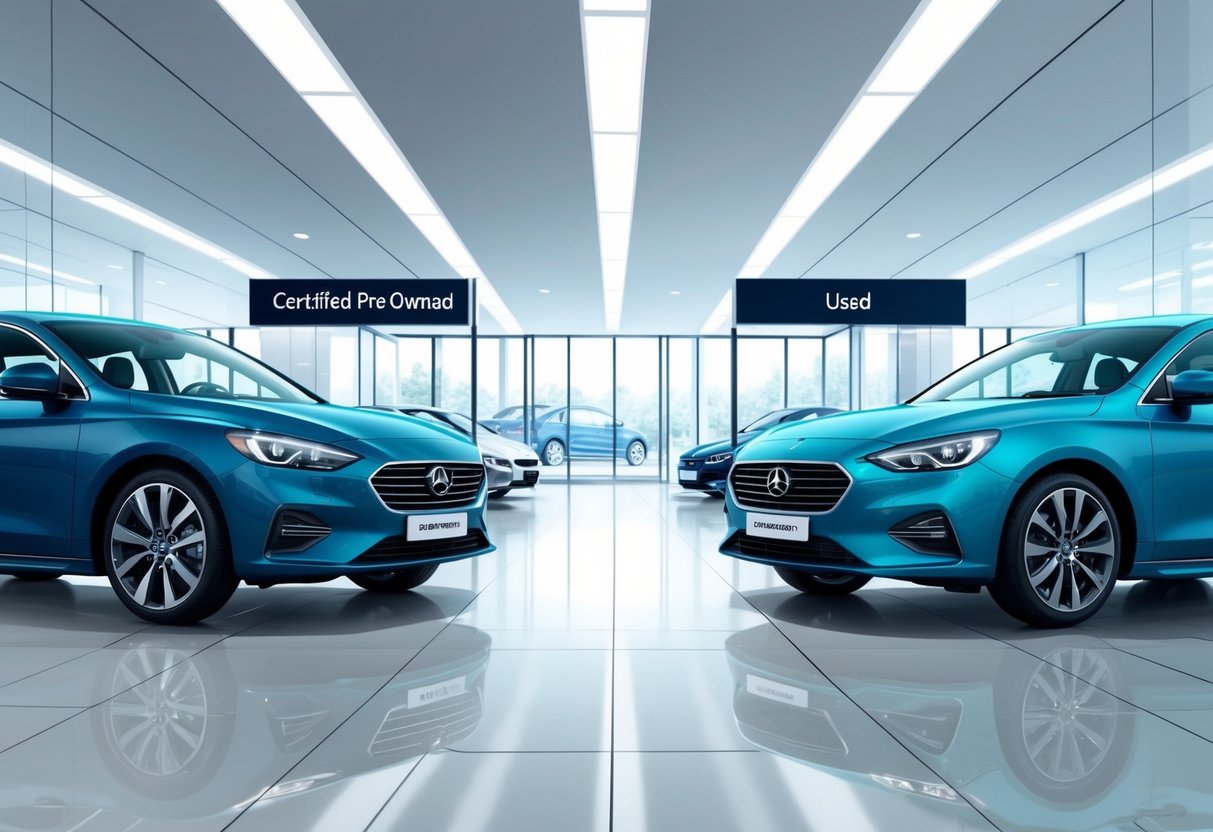
Making the Informed Choice for Your Needs
Choosing between a certified pre-owned (CPO) car and a used car involves balancing cost, confidence in vehicle quality, and long-term value. Understanding the distinctions can help buyers align their purchase with both their budget and expectations for reliability.
Assessing Your Budget and Preferences
CPO vehicles typically cost more than standard used cars due to added inspections, warranties, and manufacturer backing. Buyers who prioritize affordability may gravitate toward traditional used cars, as these usually have lower purchase prices and provide the flexibility to shop from independent sellers or dealerships.
A buyer’s personal preferences matter greatly. Those seeking a newer model with lower mileage and a manufacturer-backed warranty may find value in the higher price of CPO vehicles.
Preferred features often include multi-point inspections, roadside assistance, and the confidence of limited risk, which can outweigh initial cost for some. People who are comfortable accepting some wear, higher mileage, or minor cosmetic flaws in exchange for a lower price often favor the used car market.
For those taking this route, it is important to research the vehicle’s history, access vehicle reports, and consider third-party inspections before purchasing.
Evaluating Long-Term Satisfaction
Long-term satisfaction hinges on reliability, ongoing costs, and peace of mind after the purchase. CPO programs offer extended warranties and comprehensive inspections, which reduces the risk of unexpected repairs and fosters greater confidence in the car’s condition.
Buying a regular used car does not typically include these protections. Owners may face unexpected repair bills, but they benefit from a lower initial investment.
For those who can handle potential repairs and prefer not to pay a premium, a used car can still be a practical choice if proper due diligence is done. Studies show that owners of CPO vehicles report higher satisfaction levels than those who buy used cars without certification.
The added assurance from a warranty and a thorough inspection is a major factor in this difference, as highlighted by Consumer Reports.
Frequently Asked Questions
Comparing certified pre-owned cars and standard used cars involves differences in price, quality, and included benefits. Buyers can also expect practical differences in purchase process, inspection requirements, and dealer decision-making.
Are certified pre-owned cars worth the additional cost compared to standard used cars?
Certified pre-owned (CPO) vehicles typically cost more than regular used cars. The higher price covers benefits such as factory-backed warranties, thorough inspections, and reconditioning.
Many buyers view the extra expense as an investment in reliability and peace of mind, given that CPO cars tend to have fewer problems than non-certified used vehicles. For further details on cost-effectiveness, see this comparison of CPO and used car value.
What are the key benefits of buying a certified pre-owned car?
A certified pre-owned car comes with a manufacturer-backed warranty, multi-point inspection, and often includes roadside assistance. These vehicles are usually newer, have lower mileage, and pass strict standards set by the automaker.
Data shows that CPO vehicles typically have fewer issues post-purchase than standard used cars, which can reduce unexpected repair costs.
How much negotiation room is there when purchasing a certified pre-owned car?
CPO vehicles usually have less negotiation room than traditional used cars because they come with added benefits and manufacturer warranties. Dealerships often lock in higher prices due to the additional certification processes and work done on these vehicles.
However, there can still be some flexibility, especially if the CPO vehicle has been on the lot for a long time or if there are comparable models available.
Is it necessary to have a certified pre-owned car inspected before buying?
A CPO car has already undergone a detailed inspection as part of its certification requirements. However, some buyers choose to get a third-party mechanic to inspect the vehicle for extra reassurance.
This additional inspection can help identify issues that were missed or offer a second opinion on the car’s condition.
What reasons might a dealer have for not certifying a used car?
Dealers may choose not to certify a used car if it does not meet the age, mileage, or condition requirements set by the manufacturer. Some cars may have accident histories, frame damage, or maintenance records that disqualify them from certification.
Sometimes, certifying a car is not cost-effective for the dealer if significant repairs or reconditioning would be required.
What are some essential tips for purchasing a certified pre-owned vehicle?
When shopping for a certified pre-owned car, buyers should verify the details of the certification through the manufacturer, not just the dealership.
It is important to review the warranty coverage, included benefits, and the car’s vehicle history report.
Comparing CPO inventory, pricing, and included perks from multiple dealerships can help secure the best CPO car deal.
Reading customer reviews on specific dealer CPO programs can also provide insights into real-world experiences.